●Aggressive North, Submissive South -The Weekly Standard-
What Bush can do for the people of Korea.
by Sung-Yoon Lee 08/14/2006, Volume 011, Issue 45
CONTRARY TO popular belief, the party left most isolated by the U.N. Security Council's unanimous condemnation of North Korea's missile launches and nuclear programs is not the reclusive Pyongyang regime, but the other Korea, the affluent one south of the 38th parallel. After all, Kim Jong Il--the "general," as his people call him, although he never served in the military--can at least bet on his devoted suitors in the South Korean government to keep making passes at him. Kim's top suitor in Seoul, President Roh Moo Hyun, was abandoned not only by his American and Japanese friends--who pointedly shunned South Korea in discussions leading up to the U.N. resolution--but also by the Dear Leader himself.
A week after North Korea's July 4 missile barrage, a barely noticed follow-up tantrum by Kim's visiting envoys shook South Korea to its core. True to its criminal form, the general's delegation wined and dined in Pusan on a ministerial-level date, slapped around their southern suitors, and demanded that they pay up protection money. As a token of appreciation for the magnanimous protection, the general's gang further demanded that their southern protectorate suspend joint military exercises with the United States, abolish its anti-Communist national security law, and make sure to pay respects on their next visit to Pyongyang at the "sacred site" where the Great Leader, the general's late father, reposes embalmed.
When the southern hosts, somewhat stunned, demurred, their northern guests stormed out of the room cursing that South Korea will "pay a price" for the
"collapse" of the relationship, and that an "unforeseeable" future now lies ominously before them.
In the days following the seven-rocket salute, the South Korean president, clearly dumbfounded by the general's forwardness, began to point a finger at Japan and the United States for heightening tensions. As for the missiles themselves, the Roh government called them a "mere political gesture." When the media pointed out that all seven missiles had the range to reach any part of South Korea, a high-ranking politician from Roh's party re torted that the missiles were defensive in nature, and even if fired in a southerly direction would only be used to target U.S. forces in Korea. This came after days of insistence by the South Korean government, leading up to the blasts, that the North was planning only a harmless satellite launch.
While the United States, Japan, China, Russia, Britain, and France were brainstorming to come up with the right wording for a rebuke of Pyongyang, President Roh was busy complaining to aides about the U.S. policy of squeezing the North, which he described with an ancient Chinese expression, "strike first, settle later." Roh explained to his less erudite men that an example of such American impetuosity would be the U.S. insistence on "examining North Korea's accounts, without presenting any evidence of that regime's counterfeiting of U.S. dollars." The inference to be drawn by his aides was that Washington was unjustly bullying the general in Pyongyang for harmlessly playing with his missiles. After the Security Council condemned the North on July 15, Roh pleaded for patience: "We must take special note that the creation of a state of needless tension and confrontation by the excessive reaction of certain parties is not conducive to problem-solving."
After such an astonishing performance from Seoul, how should the Bush administration respond to its wayward ally?
One approach would be to treat the unwelcome noises from Seoul as Washington does those emanating from Pyongyang: Ignore them. Forbearance will be rewarded, perhaps in a generation or two. Historians will note that for five years George W. Bush patiently put up with a most unhelpful ally in Roh Moo Hyun's South Korea during a critical period of America's war on terror and campaign against the proliferation of nuclear weapons. No matter what, future generations of Koreans--those who value freedom and democracy--will remain grateful to Bush for what he will have achieved during his eight years in office: containing Kim Jong Il's threat to Koreans in both the North and the South and, perhaps more important, reining in Seoul's unprincipled appeasement of Kim.
Yet there is a better way. President Bush can salvage the once-healthy U.S.-South Korea relationship by engaging the people of South and North Korea. Koreans will come to regard him as they do Harry Truman--as their savior. Just as President Truman saved South Korea in June 1950 by coming to its defense against North Korea's invasion, President Bush should open America's doors more widely to North Korean refugees, thereby saving lives and awakening the South Korean people to the crimes of the Kim Jong Il regime.
On May 5, the United States welcomed ordinary North Korean refugees for resettlement for the first time. It was a major symbolic step in the growing global
campaign to raise awareness of the abuses of the totalitarian regime in Pyongyang. It was an act of compassion, courage, and leadership, as it was undertaken despite considerable grumbling from sophisticates in the United States and South Korea. It was, in the simplest sense, an act that could not have taken place had the president of the United States himself not felt compassion for the suffering of the North Korean people.
Coming out of an April 28 Oval Office meeting with North Korean refugees and the family of a Japanese woman abducted by North Korea when she was 13, President Bush said, "I have just had one of the most moving meetings since I've been the president." The previous June, President Bush had invited to the White House Kang Chol Hwan, the survivor of 10 years in a North Korean concentration camp for political prisoners. In contrast, to public knowledge, President Roh has not yet met a single North Korean refugee, although over 8,000 refugees have made their way into South Korea.
In the aftermath of U.N. Security Council Resolution 1695, the United States will no doubt continue to press South Korea to join the multinational effort to prevent the transit of weapons of mass destruction into and out of the North. South Korea's cooperation will be sought in the ongoing measures against North Korea's money-laundering and counterfeiting. The United States will insist that Seoul keep a watchful eye on transfers of hard currency into the North, which may be used to finance the building and buying of weapons of mass destruction. And Washington will continue to lean on South Korea to stand with global public opinion on North Korea's human rights violations.
However, all indications are that such exhortations will fall on deaf ears. President Roh seems to believe that the only way to salvage his floundering presidency, with an approval rating hovering in the mid-teens, is through a dramatic summit embrace with Kim Jong Il sometime before his term expires in February 2008.
At the next meeting between Bush and Roh, whether in Washington or at the Asia-Pacific Economic Cooperation (APEC) meeting in Vietnam in November, President Bush would do well to insist on making the North Korean human rights problem a priority. During Roh's visit to the White House, Bush might even invite a few North Korean refugees so that President Roh will finally have a chance to meet them. By continuing to make Kim Jong Il's systematic repression a high-profile international issue, President Bush would reaffirm to the world and to the Korean people his commitment to address one of the most egregious humanitarian disasters in history. Allowing more North Korean refugees into the United States would be eloquent in its symbolism.
Just as the United States, with Japan's support, took the initiative in galvanizing world opinion on the question of North Korea's missiles, so, too, should the United States take the leadership role in uniting the international community in condemning North Korea's heartless tyranny. President Roh, pining for a meeting with Kim Jong Il during the next year and a half of his term, will protest. But the people of North and South Korea will listen.
With more international attention to the North Korean human rights problem, and with further reports of what the United States is doing for North Korean refugees, South Korea might finally free itself of its insidious infatuation with the general. And George W. Bush will be remembered with gratitude by generations of Koreans for his concern for the people of both the North and South. That's a legacy that would make any American president proud.
Sung-Yoon Lee is Kim Koo associate in research at the Korea Institute, Harvard. The opinions expressed here in no way represent the official views of the Kim Koo Foundation or the Korea Institute.
http://www.weeklystandard.com/Check.asp?idArticle=12557&r=qzfdm
http://www.weeklystandard.com/Content/Protected/Articles/000/000/012/557qzfdm.asp?pg=1
http://www.weeklystandard.com/Content/Protected/Articles/000/000/012/557qzfdm.asp?pg=2
●韓国は国際社会で北朝鮮よりも孤立し、盧武鉉(ノ・ムヒョン)大統領はアメリカ、日本、北朝鮮からもそっぽを向かれ、韓国はアメリカの一番役に立たない同盟国とアメリカの時事週刊誌、『ウィークリースタンダード』の最新号が報道した。
アメリカネオコン(新保守主義者)の代弁紙であるこの週刊誌は、ハーバード大学韓国学研究所のイ・ソンユン研究員の寄稿文を通じ、「国連安全保障理事会の北朝鮮ミサイル打ち上げ制裁決議案の論議過程において、韓国が徹底的に排除された事で盧大統領はアメリカと日本の友邦だけでなく、金正日総書記からも見放された」と伝えた。
この週刊誌では、「わがままな同盟国・韓国から聞こえる騷音に対し、アメリカは北朝鮮から出る騷音と同じように無視する理由があり得る」とし、「歴史家達はアメリカがテロとの戦争を経験し、核兵器拡散阻止キャンペーンをしている状況で一番役に立たない同盟国・盧大統領の韓国に対し、アメリカのジョージ・W・ブッシュ大統領が5年間忍耐心を持って我慢したと記録するだろう」と主張した。
ソース:NAVER/世界日報(韓国語)
http://news.naver.com/news/read.php?mode=LSD&office_id=022&article_id=0000177202
What Bush can do for the people of Korea.
by Sung-Yoon Lee 08/14/2006, Volume 011, Issue 45
CONTRARY TO popular belief, the party left most isolated by the U.N. Security Council's unanimous condemnation of North Korea's missile launches and nuclear programs is not the reclusive Pyongyang regime, but the other Korea, the affluent one south of the 38th parallel. After all, Kim Jong Il--the "general," as his people call him, although he never served in the military--can at least bet on his devoted suitors in the South Korean government to keep making passes at him. Kim's top suitor in Seoul, President Roh Moo Hyun, was abandoned not only by his American and Japanese friends--who pointedly shunned South Korea in discussions leading up to the U.N. resolution--but also by the Dear Leader himself.
A week after North Korea's July 4 missile barrage, a barely noticed follow-up tantrum by Kim's visiting envoys shook South Korea to its core. True to its criminal form, the general's delegation wined and dined in Pusan on a ministerial-level date, slapped around their southern suitors, and demanded that they pay up protection money. As a token of appreciation for the magnanimous protection, the general's gang further demanded that their southern protectorate suspend joint military exercises with the United States, abolish its anti-Communist national security law, and make sure to pay respects on their next visit to Pyongyang at the "sacred site" where the Great Leader, the general's late father, reposes embalmed.
When the southern hosts, somewhat stunned, demurred, their northern guests stormed out of the room cursing that South Korea will "pay a price" for the
"collapse" of the relationship, and that an "unforeseeable" future now lies ominously before them.
In the days following the seven-rocket salute, the South Korean president, clearly dumbfounded by the general's forwardness, began to point a finger at Japan and the United States for heightening tensions. As for the missiles themselves, the Roh government called them a "mere political gesture." When the media pointed out that all seven missiles had the range to reach any part of South Korea, a high-ranking politician from Roh's party re torted that the missiles were defensive in nature, and even if fired in a southerly direction would only be used to target U.S. forces in Korea. This came after days of insistence by the South Korean government, leading up to the blasts, that the North was planning only a harmless satellite launch.
While the United States, Japan, China, Russia, Britain, and France were brainstorming to come up with the right wording for a rebuke of Pyongyang, President Roh was busy complaining to aides about the U.S. policy of squeezing the North, which he described with an ancient Chinese expression, "strike first, settle later." Roh explained to his less erudite men that an example of such American impetuosity would be the U.S. insistence on "examining North Korea's accounts, without presenting any evidence of that regime's counterfeiting of U.S. dollars." The inference to be drawn by his aides was that Washington was unjustly bullying the general in Pyongyang for harmlessly playing with his missiles. After the Security Council condemned the North on July 15, Roh pleaded for patience: "We must take special note that the creation of a state of needless tension and confrontation by the excessive reaction of certain parties is not conducive to problem-solving."
After such an astonishing performance from Seoul, how should the Bush administration respond to its wayward ally?
One approach would be to treat the unwelcome noises from Seoul as Washington does those emanating from Pyongyang: Ignore them. Forbearance will be rewarded, perhaps in a generation or two. Historians will note that for five years George W. Bush patiently put up with a most unhelpful ally in Roh Moo Hyun's South Korea during a critical period of America's war on terror and campaign against the proliferation of nuclear weapons. No matter what, future generations of Koreans--those who value freedom and democracy--will remain grateful to Bush for what he will have achieved during his eight years in office: containing Kim Jong Il's threat to Koreans in both the North and the South and, perhaps more important, reining in Seoul's unprincipled appeasement of Kim.
Yet there is a better way. President Bush can salvage the once-healthy U.S.-South Korea relationship by engaging the people of South and North Korea. Koreans will come to regard him as they do Harry Truman--as their savior. Just as President Truman saved South Korea in June 1950 by coming to its defense against North Korea's invasion, President Bush should open America's doors more widely to North Korean refugees, thereby saving lives and awakening the South Korean people to the crimes of the Kim Jong Il regime.
On May 5, the United States welcomed ordinary North Korean refugees for resettlement for the first time. It was a major symbolic step in the growing global
campaign to raise awareness of the abuses of the totalitarian regime in Pyongyang. It was an act of compassion, courage, and leadership, as it was undertaken despite considerable grumbling from sophisticates in the United States and South Korea. It was, in the simplest sense, an act that could not have taken place had the president of the United States himself not felt compassion for the suffering of the North Korean people.
Coming out of an April 28 Oval Office meeting with North Korean refugees and the family of a Japanese woman abducted by North Korea when she was 13, President Bush said, "I have just had one of the most moving meetings since I've been the president." The previous June, President Bush had invited to the White House Kang Chol Hwan, the survivor of 10 years in a North Korean concentration camp for political prisoners. In contrast, to public knowledge, President Roh has not yet met a single North Korean refugee, although over 8,000 refugees have made their way into South Korea.
In the aftermath of U.N. Security Council Resolution 1695, the United States will no doubt continue to press South Korea to join the multinational effort to prevent the transit of weapons of mass destruction into and out of the North. South Korea's cooperation will be sought in the ongoing measures against North Korea's money-laundering and counterfeiting. The United States will insist that Seoul keep a watchful eye on transfers of hard currency into the North, which may be used to finance the building and buying of weapons of mass destruction. And Washington will continue to lean on South Korea to stand with global public opinion on North Korea's human rights violations.
However, all indications are that such exhortations will fall on deaf ears. President Roh seems to believe that the only way to salvage his floundering presidency, with an approval rating hovering in the mid-teens, is through a dramatic summit embrace with Kim Jong Il sometime before his term expires in February 2008.
At the next meeting between Bush and Roh, whether in Washington or at the Asia-Pacific Economic Cooperation (APEC) meeting in Vietnam in November, President Bush would do well to insist on making the North Korean human rights problem a priority. During Roh's visit to the White House, Bush might even invite a few North Korean refugees so that President Roh will finally have a chance to meet them. By continuing to make Kim Jong Il's systematic repression a high-profile international issue, President Bush would reaffirm to the world and to the Korean people his commitment to address one of the most egregious humanitarian disasters in history. Allowing more North Korean refugees into the United States would be eloquent in its symbolism.
Just as the United States, with Japan's support, took the initiative in galvanizing world opinion on the question of North Korea's missiles, so, too, should the United States take the leadership role in uniting the international community in condemning North Korea's heartless tyranny. President Roh, pining for a meeting with Kim Jong Il during the next year and a half of his term, will protest. But the people of North and South Korea will listen.
With more international attention to the North Korean human rights problem, and with further reports of what the United States is doing for North Korean refugees, South Korea might finally free itself of its insidious infatuation with the general. And George W. Bush will be remembered with gratitude by generations of Koreans for his concern for the people of both the North and South. That's a legacy that would make any American president proud.
Sung-Yoon Lee is Kim Koo associate in research at the Korea Institute, Harvard. The opinions expressed here in no way represent the official views of the Kim Koo Foundation or the Korea Institute.
http://www.weeklystandard.com/Check.asp?idArticle=12557&r=qzfdm
http://www.weeklystandard.com/Content/Protected/Articles/000/000/012/557qzfdm.asp?pg=1
http://www.weeklystandard.com/Content/Protected/Articles/000/000/012/557qzfdm.asp?pg=2
●韓国は国際社会で北朝鮮よりも孤立し、盧武鉉(ノ・ムヒョン)大統領はアメリカ、日本、北朝鮮からもそっぽを向かれ、韓国はアメリカの一番役に立たない同盟国とアメリカの時事週刊誌、『ウィークリースタンダード』の最新号が報道した。
アメリカネオコン(新保守主義者)の代弁紙であるこの週刊誌は、ハーバード大学韓国学研究所のイ・ソンユン研究員の寄稿文を通じ、「国連安全保障理事会の北朝鮮ミサイル打ち上げ制裁決議案の論議過程において、韓国が徹底的に排除された事で盧大統領はアメリカと日本の友邦だけでなく、金正日総書記からも見放された」と伝えた。
この週刊誌では、「わがままな同盟国・韓国から聞こえる騷音に対し、アメリカは北朝鮮から出る騷音と同じように無視する理由があり得る」とし、「歴史家達はアメリカがテロとの戦争を経験し、核兵器拡散阻止キャンペーンをしている状況で一番役に立たない同盟国・盧大統領の韓国に対し、アメリカのジョージ・W・ブッシュ大統領が5年間忍耐心を持って我慢したと記録するだろう」と主張した。
ソース:NAVER/世界日報(韓国語)
http://news.naver.com/news/read.php?mode=LSD&office_id=022&article_id=0000177202
















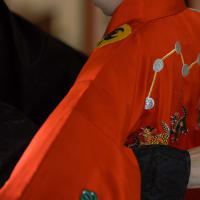
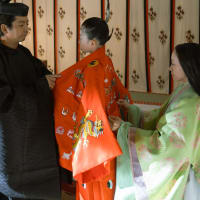
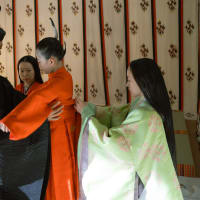
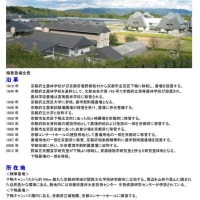
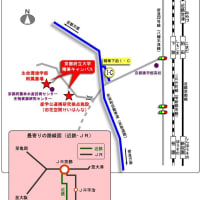
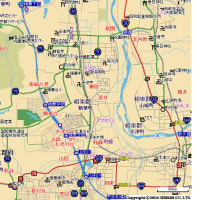






※コメント投稿者のブログIDはブログ作成者のみに通知されます